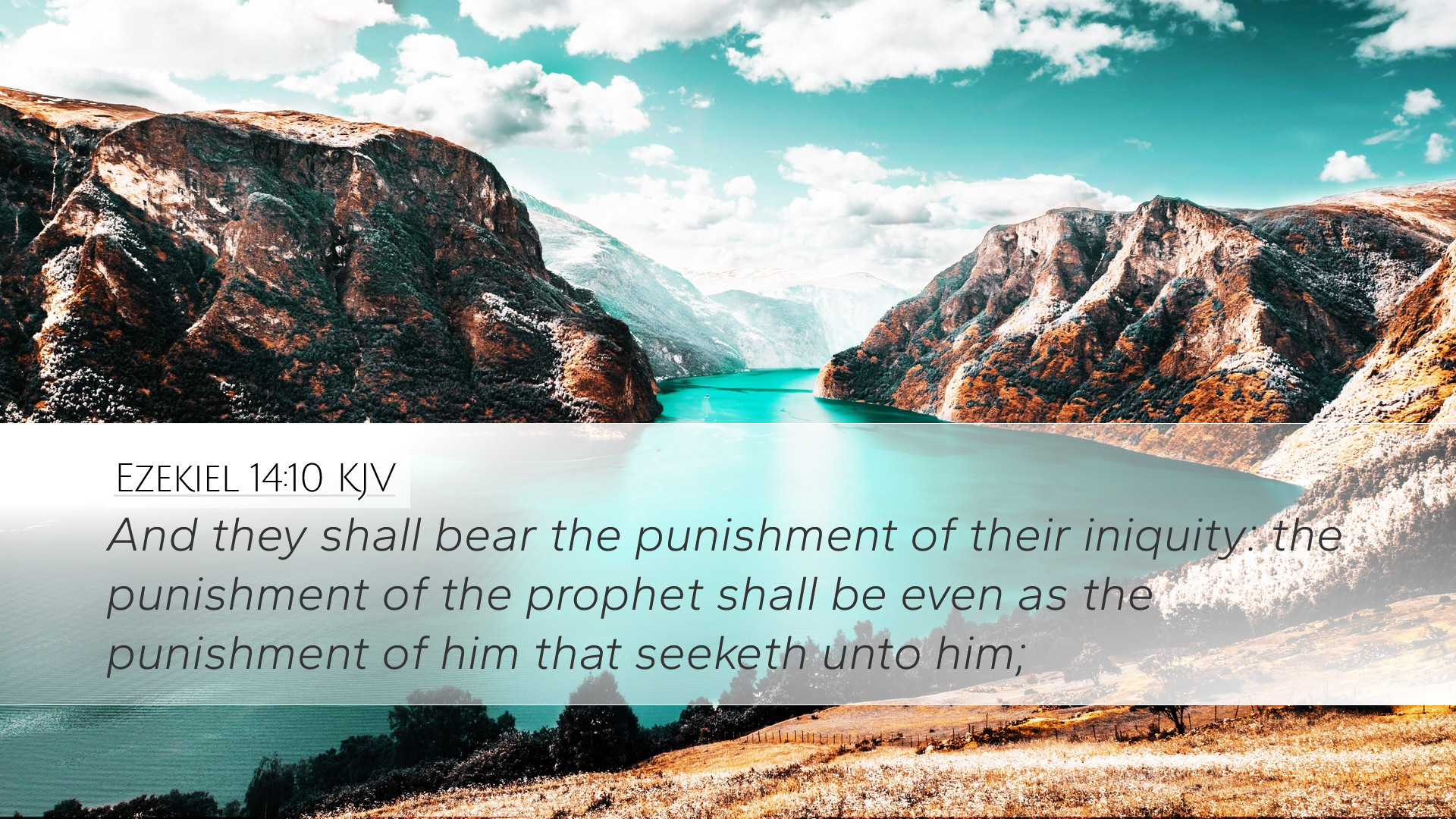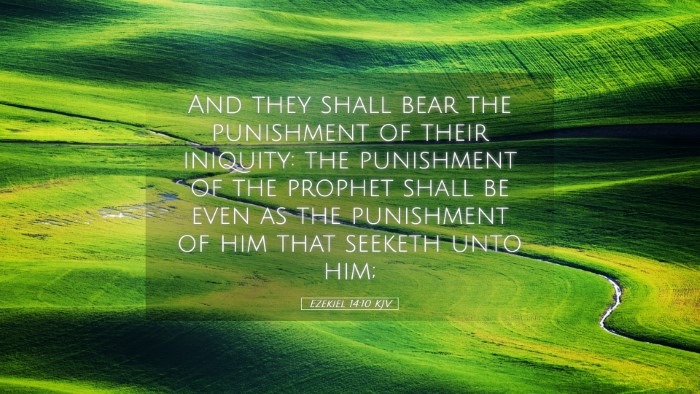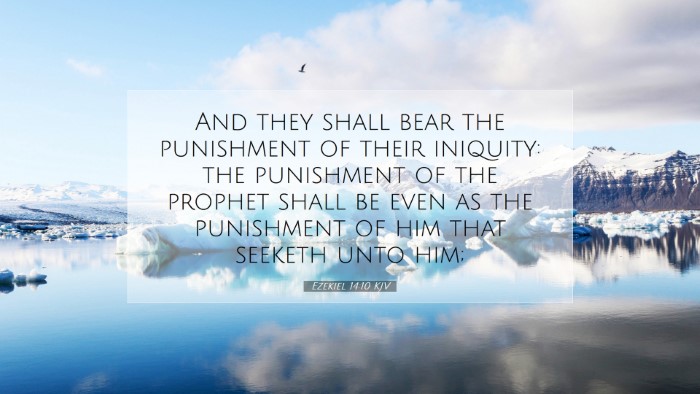Bible Commentary on Ezekiel 14:10
Ezekiel 14:10: "And they shall bear the punishment of their iniquity: the prophet shall be as the prophet; and the man shall be as the man."
Introduction
The verse from Ezekiel 14:10 serves to emphasize the consequences of individual and collective sin within the community of Israel. In this context, the prophet Ezekiel articulates God’s judgment and the principle of personal responsibility. This commentary seeks to synthesize insights from notable public domain scholars, providing depth and clarity for pastors, students, theologians, and Bible scholars.
Contextual Analysis
Ezekiel prophesied during a time of great turmoil for Israel, marked by the Babylonian exile. The relevance of individual accountability is central to Ezekiel's message. The chapter discusses the influence of false prophets, emphasizing the dire consequences that could befall a nation that turns away from God's truth.
Matthew Henry's Insights
Matthew Henry asserts that this verse illustrates God's governance over His people. He contends that all individuals, regardless of their role as prophets or common men, must bear the consequences of their deeds. Henry remarks: "The prophet shall be as the prophet," indicating that no one, especially the leaders, can escape judgment based on their call or title. The weight of sin rests upon each person.
Albert Barnes' Commentary
Albert Barnes stresses the notion of communal accountability while highlighting personal service to God. He interprets the phrase "they shall bear the punishment of their iniquity" as an assertion of divine justice that punishes both the prophet and the people according to their own actions. Barnes notes: "God judges the false prophets who deceive and lead others astray, just as He judges those who follow them." This reflection serves to remind believers of the seriousness of leading others towards or away from God.
Adam Clarke's Perspective
Adam Clarke emphasizes the weight of responsibility that prophets hold. He writes that the condemnation of false prophets serves as a warning to true prophets to remain steadfast in their faithfulness to God's Word. Clarke elucidates that the phrase "the man shall be as the man" signifies equal treatment in judgment. No one can rely on another's righteousness; each will stand before God for their own actions.
Theological Implications
While the judgment of God appears daunting, it encapsulates the principle of justice which assures believers that every sin carries consequences. Understanding this can lead to a deeper appreciation for the grace offered through Jesus Christ.
Sin and Accountability
It is crucial for individuals to recognize their own culpability. Both Henry and Barnes highlight that personal accountability is a non-negotiable component of faith. Clarke reiterates this by suggesting that one must not depend solely on the righteousness or position of others.
False Prophets and Spiritual Leadership
The warnings against false prophets resonate throughout Ezekiel’s ministry. The spiritual state of the community is often determined by its leaders, making it paramount for spiritual leaders to remain true to God’s message. The verse serves as a caution against complacency and encourages vigilance in spiritual leadership.
Application for Modern Believers
This passage calls contemporary believers to reflect on their personal and collective spiritual journeys. Some practical applications include:
- Embrace Personal Responsibility: Each believer should assess their own actions and their impact on both their lives and the lives of those around them.
- Discernment in Following Leadership: Be cautious of the teachings and leadership one follows. Ensure that spiritual leaders align with God’s truth.
- Commitment to Righteousness: Recognize that personal righteousness cannot be vicariously obtained. Each believer’s faith must be their own.
Conclusion
Ezekiel 14:10 conveys profound truths about judgment, accountability, and the influence of false prophets. By integrating the insights from prominent biblical scholars like Matthew Henry, Albert Barnes, and Adam Clarke, readers are encouraged to take these teachings to heart. Each individual stands before God, accountable for their own iniquities and responsible for the truth they uphold.


